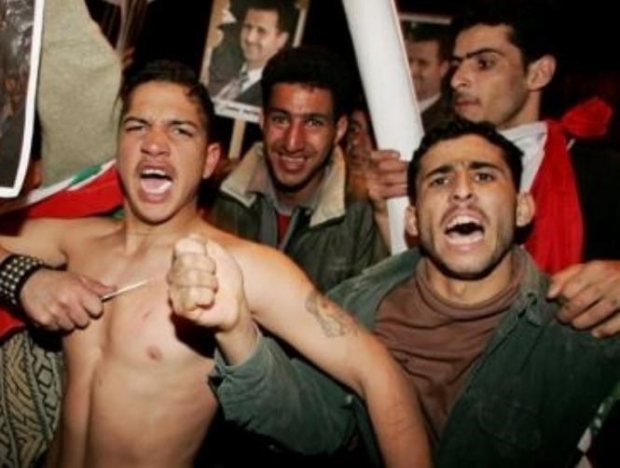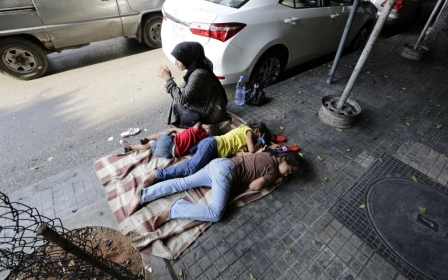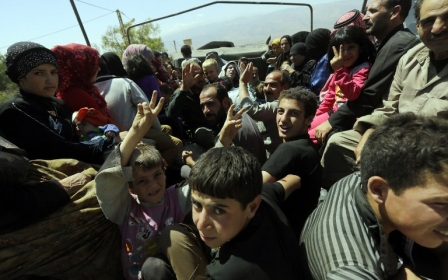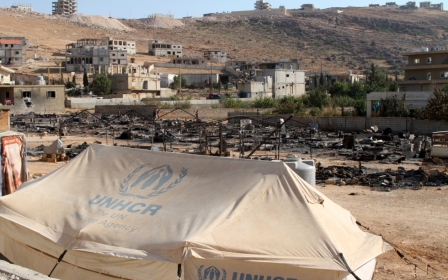Fanning the anti-Syrian flames in Lebanon
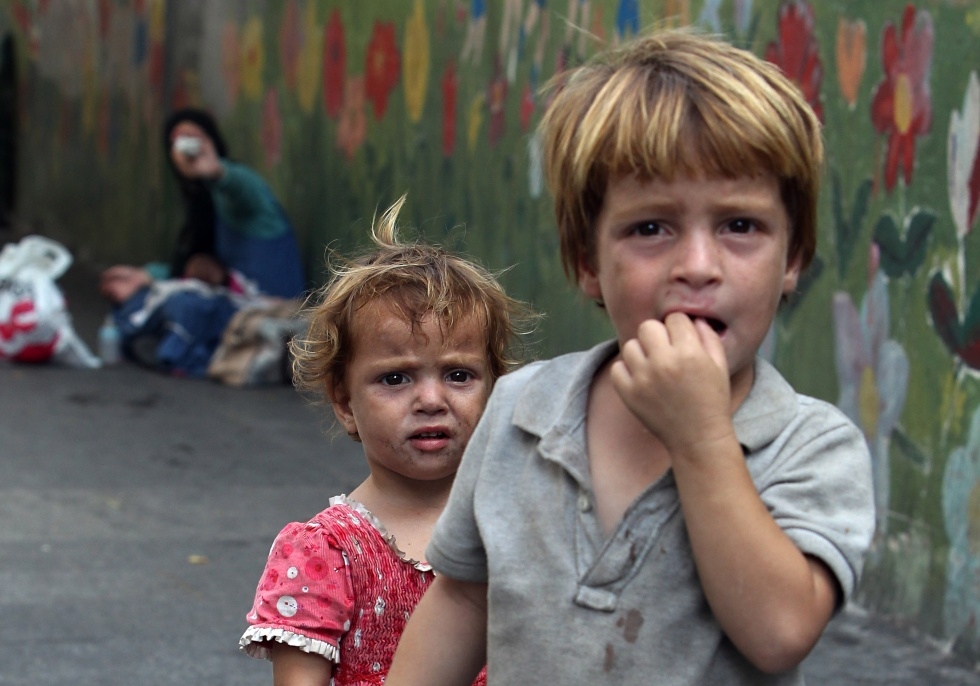
On 14 October, a dispatch appeared on the website of Lebanon’s prominent MTV television channel: “Dear HRW, I Don’t Want to Be Assaulted!!”
It has since been removed but is still accessible via the Google cache option.
Written by Maria Fellas, the piece takes issue with a recent Human Rights Watch (HRW) report criticising the curfews for Syrian refugees that have been implemented in at least 45 municipalities across Lebanon. The nation officially hosts about 1.2 million refugees from Syria, a figure that doesn’t take into account unregistered people..
According to HRW, the curfews “violate international human rights law and appear to be illegal under Lebanese law” - with the uncertainty perhaps stemming from the fact that Lebanese “law” can often be ambiguous at best. The report notes that such measures restrict human movement on the basis of nationality and “contribute to a climate of discriminatory and retaliatory practices” against refugees.
Fellas’ dubious cognitive capabilities are on display from the get-go. After explaining that “this is quite a delicate matter that some might find a bit offensive” and that she will thus “attempt to approach it in a somewhat more subtle way than [she] normally would have”, Fellas announces that she “almost got knocked off [her] seat” by the HRW report. She proceeds to educate the organisation as to “the reasons behind” the rampant curfews.
The primary reason, apparently, is that a Syrian janitor killed a Lebanese girl in 2011, from which event Fellas extracts the following lesson: “This doesn't necessarily mean that all Syrians will attempt to kill and/or rape Lebanese girls, but precaution is a must.”
The facade of diplomacy, of course, only serves to entrench the negative image in the reader’s mind. Say I’m writing an essay about Africa and include the disclaimer that “Not all Africans are AIDS-infested barbarians”; chances are my audience will nonetheless come away from the statement with a negative impression of Africans in general and will discriminate accordingly.
Meanwhile, the fact that Lebanon’s thriving tradition of homicide exists independently of the Syrian population - the Lebanese civil war comes to mind - raises the question of why a universal curfew hasn’t been deemed necessary.
‘Some Syrian could be lurking’
An MTV television show by the name of “Deprived of Freedom”, focusing on Lebanon’s prison population, provides additional proof that numerous crimes of a non-Syrian nature are committed in the country.
But from Fellas’ perspective, Syrians must suffer freedom deprivation so that she can be free. Explaining that, years ago, she would spend Fridays “frolicking around” Byblos, a Christian city north of Beirut, “until way past sundown”, Fellas confesses that she no longer has “the guts” to walk around after 7 pm: “[I]t scares me to death that some Syrian could be lurking out there.”
So much for pretences to subtlety, or for MTV’s stated vision of itself as a “catalyst and vehicle for inclusion and regional well-being” - the provider of content that “develops minds and ripens individuals, free of any bias”.
Meanwhile, just when you think your gag reflex can’t possibly be triggered so many times in rapid succession, Fellas churns out yet more justifications for the collective punishment of Syrians: “As a Lebanese, as a future mother and current daughter, I fear for my life, that of my sister and that of my mom.”
Presumably in reference to said sister and mother, respectively, she continues: “Why should she refrain from carrying her favourite bag? Why should she tell me not to go out at a certain hour? Isn't this our country where we are free to do whatever we please?”
I myself was recently in Byblos after seven at night and didn’t detect any lurking Syrians, but maybe I didn’t have the right bag.
Although Fellas contends that it is wrong and unfair to portray Syrian refugees as victims (“[T]hey’re not”), it seems most of them have more legitimate things to complain about than self-imposed restrictions on favourite accessories. In addition to having to flee their homes and all that, Syrians are now being re-victimised by the country that is ostensibly serving as their refuge.
Syrian tents and shelters have been burned down, and the fallout from the curfew regime is intensifying: HRW cites reports of refugees being forcibly prevented from procuring medicine from the pharmacy at night for sick children, and of being stabbed while walking after dark.
It is safe to assume that refugees condemned to live on landfill sites and in other squalid conditions - not to mention Syrian kids forced to beg on the streets - would rather be “frolicking around” too.
Only downhill from here
Near the end of her rant, Fellas lectures: “So Dear HRW [sic], stop trying to make us look bad or feel guilty for attempting to protect ourselves against an ever-growing danger.”
Clearly, Fellas doesn’t require any assistance in the art of looking bad. But her attitude would be a lot less disturbing if it were confined to a single unhinged individual and not representative of a sizable portion of the Lebanese population.
A recent study conducted by Drs Charles Harb and Reem Saab of the American University of Beirut found that over 90 percent of Lebanese nationals in three areas with refugee concentrations supported curfews and other discriminatory policies, while over 10 percent strongly supported violence against refugees.
For Lebanese officials, the utility of hyping the Syrian bogeyman is undeniable - providing as it does a distraction from the state’s own transgressions vis-a-vis its citizenry, whose economic and infrastructural needs are perpetually disregarded in favour of elite profit.
But the fabricated spectre affects the lives of real Syrians, and, as HRW notes, the curfews have spawned local Lebanese vigilante groups that enforce them along with municipal police - as though Lebanon were in need of any more armed entities. HRW’s deputy Middle East director, Nadim Houry, says that “[t]he authorities have presented no evidence that curfews for Syrian refugees are necessary for public order or security in Lebanon”.
In some areas, curfews for “foreigners” (read: Syrians) are announced on banners or smaller signs, and on a visit to a small mountain village the other day I saw a notice attached to a church bulletin board requesting that Syrians carry an identification document at all times.
To be sure, the situation is not yet as bad as it can get, but, as we know from historical experience, the systematic persecution of select communities can lead to unspeakable crimes.
And while there’s no denying the current increase in crime in Lebanon - as can only be expected when the country’s population increases by over 25 percent - the de facto criminalisation of Syrian-ness is a pretty serious crime too.
- Belen Fernandez is the author of The Imperial Messenger: Thomas Friedman at Work, published by Verso. She is a contributing editor at Jacobin magazine.
The views expressed in this article belong to the author and do not necessarily reflect the editorial policy of Middle East Eye.
Photo: Syrian refugee children beg for money in the Lebanese capital, Beirut, on 29 August, 2014 (AFP)
New MEE newsletter: Jerusalem Dispatch
Sign up to get the latest insights and analysis on Israel-Palestine, alongside Turkey Unpacked and other MEE newsletters
Middle East Eye delivers independent and unrivalled coverage and analysis of the Middle East, North Africa and beyond. To learn more about republishing this content and the associated fees, please fill out this form. More about MEE can be found here.



